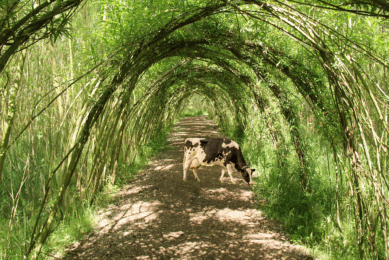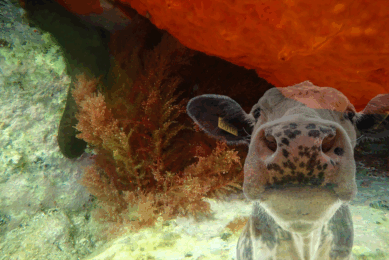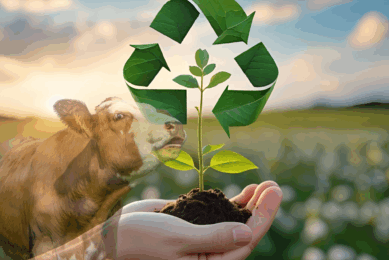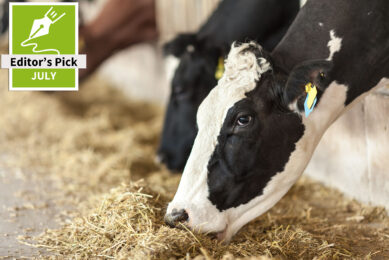South Africa’s BSE-free rating steps still not implemented
Sad to say that more than 7 years after the first constructive debates took place to implement firm steps to have South Africa rated a BSE-free country, industry partners of the Livestock and Animal Feed Industry Forum (LAFIF) under the auspices of the SA Animal Feed Manufacturers’ Association (AFMA) once again had to get together at a recent BSE workshop to debate the exact same issues as in 2003.
In 2007, I have already indicated in one of my blogs that, although there has never been any official case of BSE in South Africa, the European Food Safety Commission (EFSA) decided to give us a Geographical BSE Risk (GBR) level ‘lll’ rating based on data for the period 1980 to 2003. This was largely due to the fact of:
- The first submission (2001) by Government to EFSA (Europe Food Safety Agency) being inadequate and incorrect (leading to Level III rating), although the information was available; and
- The Scientific Steering Committee (SSC) of EFSA discontinuing its assessments as of 2003, and SA, through Government, not meeting the D-Date allowed for corrections within EFSA.
For those that do not know, a level “III” rating means that it is likely but not confirmed that domestic cattle in South Africa are infected with the BSE agent. Due to the strict measures implemented as far back as 1997 by the South African formal feed industry to prevent BSE, and a reasonably well controlled formal rendering business, our chances of contracting BSE are as low as many official BSE-free countries. The SA livestock industry therefore has no doubt that South Africa is BSE free. The issue however, is that the informal sector did not follow the required regulations which, from a legislation point of view, should have been the responsibility of South Africa’s Department of Agriculture.
South Africa’s level “lll” rating continues to have a negative impact on import and export trade concerning animal products across the globe. Due to autocratic regulatory bodies and resource limited Government departments industry stakeholders debated whether South Africa should further care about a BSE-free rating. Global trade is anyway regulated by different artificial trade barriers that often make no sense and were rather implemented to protect local product markets of mainly developed countries. Despite this, it was however unanimously agreed that a BSE-free rating remains of vital importance to South Africa for the following reasons:
- To maintain and expand trade in animal products.
- To produce quality safe feed and safe food.
- To protect animals and consumers.
A BSE-free rating will also ensure the crucial continuous existence of the Renderers Association of South Africa, responsible for processing offal from abattoirs into high quality protein animal feed to supplement the animal feed chain. If the Renderers Association cannot continue to add value to the offal from abattoirs, South Africa will be faced with a serious environmental pollution situation.
At the latest workshop at least a better understanding than in the past transpired between government and industry on how to enforce the latest OIE regulations stipulated as being part of the Department of Agriculture’s actions, in conjunction with industry resources and possibly independent policing agents, specifically with regard to the informal sector, to ensure that South Africa would in future comply with all the regulations in order to be rated a BSE-free country. It was further agreed that the current South African BSE status, an official plan to improve our rating, actions to be taken, and responsibility of each stakeholder will now again be documented and agreed upon in a follow up meeting that will take place soon.
The feed ban to prevent BSE in South Africa under Act 36 of 1947 (Notice 1360 of 22 September 2006, as re-instated by Regulation No. R. 542 of 07 July 2007) at the moment prohibits any person –
- at farm feeds establishments where farm feeds are manufactured for animals except where farm feeds are manufactured only for dogs and cats from acquiring or handling any ruminant and/or porcine derived protein and/or by-products (except for milk and milk products).
- from using ruminant derived protein and/or by-products (except milk and milk products) in farm feeds other than in farm feeds intended for dogs and cats.
- from using porcine derived protein and/or by-products (except milk and milk products) in farm feeds intended for ruminants .
The feed ban to prevent BSE under Act 35 of 1984, as amended on 06 July 2007 (Regulation No. R. 543, Government Gazette No. 30023, page 12) also reads as follows:
“No person shall feed any protein of ruminant origin (except milk and milk products) to any animals other than predators and carnivores.”
The ban of the use of ruminant protein and by-products (which include the use of ruminant blood meal in feed) was however once again amended during the week of 23 June 2010, after a publication of an amendment of Regulation 24 under Act 35, which provides for the use of ruminant blood meal under certain conditions and after the approval of the application for exemption under Act 35 and Act 36.











